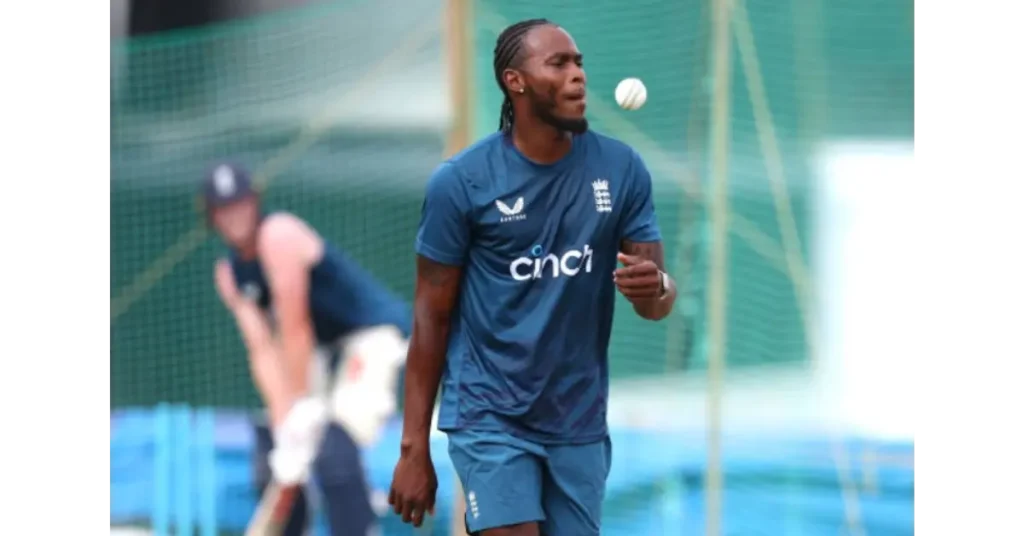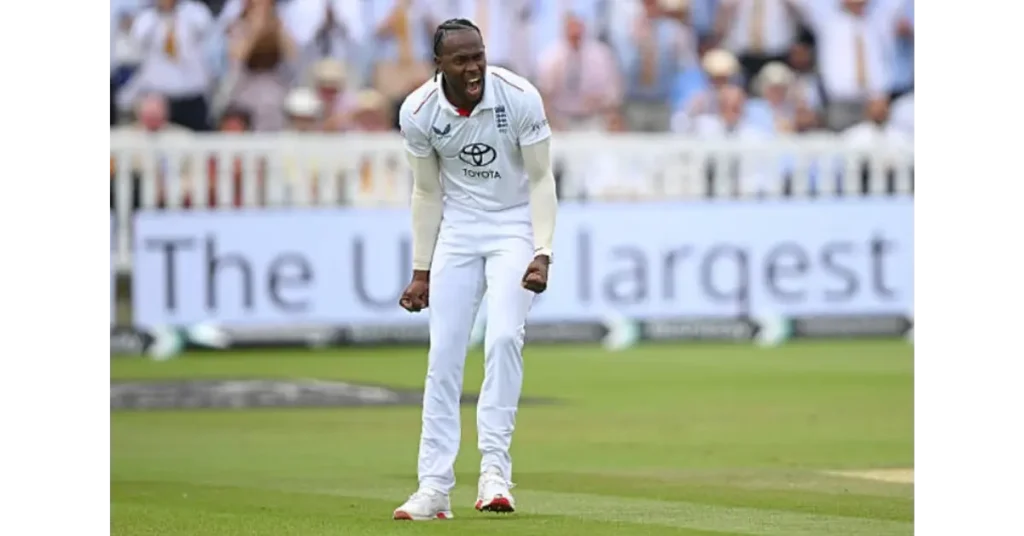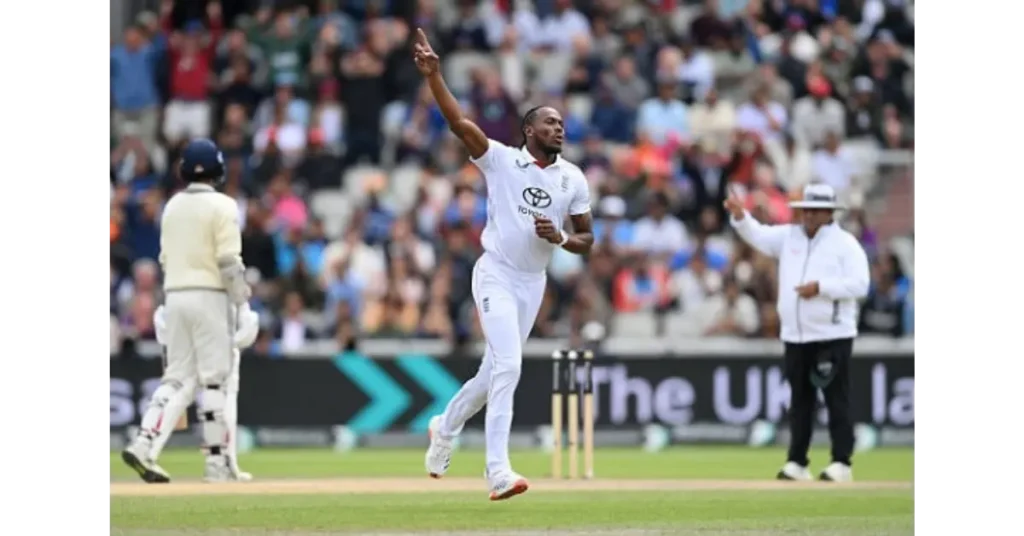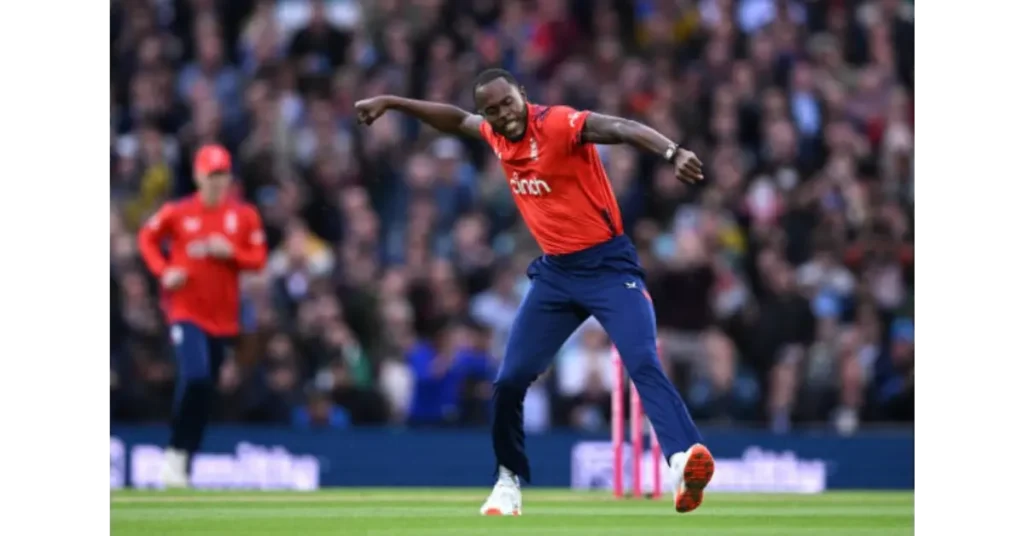
Born on April Fool’s Day in 1995, Archer’s life has been anything but a joke. His meteoric rise from the cricket grounds of Barbados to the hallowed turf of Lord’s Cricket Ground represents one of modern cricket’s most compelling narratives. With a bowling action that can terrorize the world’s best batsmen and a smile that has won hearts globally, Archer has become synonymous with English cricket’s golden era.
However, beneath the World Cup celebrations and Ashes heroics lies a more complex story—one of identity, belonging, and the physical toll that elite sport demands. Archer’s journey from a promising West Indies Under-19 player to England’s pace spearhead illustrates the modern realities of international cricket, where talent transcends traditional boundaries. His story serves as both inspiration and cautionary tale, demonstrating how quickly fortunes can change in professional sport, and how mental fortitude often proves as crucial as physical ability in overcoming life’s greatest challenges.
Early Life and Education
Jofra Chioke Archer entered the world on April 1, 1995, in Bridgetown, Barbados, a Caribbean island steeped in cricketing tradition and renowned for producing some of the game’s most formidable fast bowlers. His mixed heritage would prove pivotal to his future career trajectory—his father, Frank Archer, hailed from England and worked as a London Underground train driver, while his mother, Joelle Waithe, was a proud Barbadian with deep roots in the island’s culture.
The family dynamics that shaped Archer’s early years were complex and influential. When Jofra was just three years old, his parents separated, leading his mother Joelle to eventually remarry Patrick Waithe, who would become a crucial figure in the young boy’s development. Patrick didn’t merely fill the role of stepfather; he became Jofra’s first cricket coach, spending countless hours in the backyard helping him refine his bowling technique and nurture his natural athletic ability.

Growing up in Barbados meant cricket wasn’t just a sport—it was a way of life. Archer attended Christ Church Foundation School in Bridgetown, where his exceptional athletic abilities became apparent early. While cricket captured his primary attention, Archer also excelled in track and field, particularly long-jump competitions, showcasing the raw athleticism that would later translate into his fearsome pace bowling.
The influence of Barbados’s rich cricketing heritage cannot be understated in shaping Archer’s early development. The island has produced legendary fast bowlers like Sir Garfield Sobers, Malcolm Marshall, and Joel Garner—names that adorned the walls of local cricket clubs and inspired young players like Archer. This environment fostered not just technical skills but also the mental toughness required for fast bowling at the highest level.
Archer’s teenage years marked the beginning of his serious cricket journey. He represented Barbados at various youth levels and caught the attention of West Indies selectors, eventually earning selection for the West Indies Under-19 team in 2013. However, injury would prove to be an early adversary—a back problem prevented him from participating in the 2014 Under-19 World Cup, a setback that would foreshadow future challenges while potentially altering his international allegiance.
The decision to pursue cricket in England emerged through a combination of circumstances and relationships. Fellow Barbadian-born cricketer Chris Jordan, who had successfully transitioned to English cricket, recognized Archer’s potential and recommended him to Sussex County Cricket Club. This connection, combined with Archer’s British citizenship through his father, opened doors that might otherwise have remained closed. The move to England in 2015 represented more than a change of scenery—it was a leap of faith that would ultimately reshape English cricket’s future.
During this transitional period, Archer briefly attended Dulwich College in London, experiencing English education and culture firsthand. This exposure helped him adapt to his new environment while maintaining connections to his Barbadian roots. The blend of Caribbean flair and English discipline would become a hallmark of his playing style, making him uniquely effective in both formats of the game.
Career and Accomplishments

Jofra Archer’s professional cricket career began with Sussex County Cricket Club in July 2016, marking the start of what would become one of the most remarkable journeys in modern cricket. His first-class debut against Pakistan during their tour of England immediately announced his arrival, with his raw pace and natural ability catching the attention of cricket observers nationwide. Within the same month, he made his T20 and List A debuts, showcasing his adaptability across formats—a quality that would define his international success.
The early signs of Archer’s exceptional talent were unmistakable. His debut performances for Sussex revealed a bowler capable of bowling consistently above 90 mph while maintaining control and accuracy. This combination of pace and precision caught the attention of franchise cricket leagues worldwide, leading to opportunities in Australia’s Big Bash League with Hobart Hurricanes and eventually the Indian Premier League with Rajasthan Royals.
His IPL debut in 2018 proved to be a watershed moment in establishing his global reputation. Playing against Mumbai Indians, Archer claimed three wickets and earned the Player of the Match award, announcing his arrival on cricket’s biggest stage. Despite Rajasthan Royals finishing at the bottom of the table that season, Archer’s performances earned him the Most Valuable Player award, a testament to his individual brilliance even in team adversity.
The 2019 World Cup breakthrough represents the pinnacle of Archer’s career achievements. England’s decision to fast-track his international eligibility by reducing the residency requirement from seven to three years proved prescient. Making his ODI debut against Ireland in May 2019, just weeks before the World Cup, Archer seamlessly transitioned from county cricket to international level.
Throughout the World Cup, Archer claimed 20 wickets in 11 matches, becoming England’s leading wicket-taker in the tournament. His economy rate of 4.57 runs per over demonstrated remarkable control under pressure, while his ability to bowl yorkers at crucial moments made him invaluable in England’s march to the final. The tournament’s defining moment came in the final against New Zealand, where Archer bowled the Super Over that would determine cricket history.
The pressure of bowling the Super Over—essentially six balls to determine England’s first World Cup triumph—would have overwhelmed many bowlers. Archer later revealed he attempted to review the first ball wide call, only to be informed by captain Eoin Morgan that such reviews weren’t permitted. Despite this setback and the immense pressure, Archer held his nerve as the Super Over also ended in a tie, with England ultimately winning on boundary count. This moment elevated him from promising fast bowler to World Cup hero, cementing his place in English cricket folklore.
The 2019 Ashes series further established Archer’s reputation as a match-winner in Test cricket. His debut at Lord’s against Australia became legendary, not just for his bowling figures of 6 for 45, but for the dramatic confrontation with Steve Smith. The bouncer that struck Smith on the helmet became one of cricket’s most talked-about deliveries, temporarily removing Australia’s best batsman from the match due to concussion protocols.
Dale Steyn’s comparison of Archer to himself represented the ultimate validation from one of cricket’s greatest fast bowlers. Warner’s assessment that Archer bowled “like Dale Steyn” highlighted the immediate impact he had on international cricket, drawing comparisons to legends of the game. Throughout the series, Archer claimed 22 wickets in just four matches, demonstrating sustained excellence at the highest level.
The recognition of Archer’s impact came through multiple awards and honors. His inclusion in Wisden’s Cricketers of the Year for 2020 acknowledged his extraordinary debut season. The England and Wales Cricket Board (ECB) rewarded his performances with a central contract, reflecting their long-term commitment to his career.
Experience and Expertise in Archer’s case manifest through his unique combination of raw pace, tactical awareness, and adaptability across formats. His ability to consistently bowl above 90 mph while maintaining line and length demonstrates technical mastery developed through years of practice and professional coaching. His success in various T20 leagues worldwide showcases his adaptability to different conditions, pitches, and game situations.

Authoritativeness stems from his proven performance in cricket’s biggest moments. Bowling the World Cup final Super Over, taking six wickets on Ashes debut, and consistently performing under pressure establish his credentials as a reliable performer when stakes are highest. International recognition from peers, including comparisons to legendary fast bowlers, reinforces his standing within the cricket community.
Trustworthiness is demonstrated through his consistent performance levels and professional approach to the game. Despite facing significant injury challenges, Archer has maintained transparency about his condition and worked diligently on his rehabilitation, earning respect from teammates, opponents, and cricket administrators globally.
Personal Life and Legacy
Behind the fierce bowling and World Cup heroics lies a more private individual who has navigated the complexities of international stardom while maintaining connections to his Caribbean roots. Archer’s personal life reflects the duality of his professional career—split between two cultures, two cricketing traditions, and ultimately two homes.
Relationships and Family Connections remain central to Archer’s identity. His close bond with his mother Joelle Waithe, now a successful fashion designer in Barbados, provides emotional grounding throughout his career’s ups and downs. His stepfather Patrick’s influence continues to resonate, having been present during England’s World Cup triumph celebration, symbolizing the family support that sustained Archer’s journey. The relationship with his biological father Frank has been less prominent publicly, but his British citizenship through paternal lineage proved crucial for his international career.
Romantically, Archer has maintained a notably private profile. While rumors have linked him to Druanna Butler, a fellow Barbadian who attended the same school, Archer has generally avoided public discussion of his relationships. This discretion reflects his broader approach to fame, preferring to let his cricket do the talking rather than courting media attention.
Personal Interests and Lifestyle reveal a modern athlete comfortable with contemporary culture. Archer is an avid gamer, frequently playing Fortnite and Call of Duty, activities that provide relaxation and mental escape from cricket’s pressures. His social media presence showcases his personality—confident, stylish, and connected to both English and Caribbean cultures.
His lifestyle choices, including his collection of gold chains and luxury watches, reflect success while maintaining connections to Caribbean fashion sensibilities.
The Challenge of Injuries has defined much of Archer’s recent personal journey, testing both his physical resilience and mental fortitude. The timeline of injuries beginning in January 2020 reads like a medical case study: elbow stress fractures, multiple surgeries, back problems, and even a bizarre incident involving glass in his hand from cleaning a fish tank.
The psychological impact of extended injury periods cannot be understated. In interviews, Archer has been remarkably candid about experiencing dark mental health periods, admitting to fears about losing his England contract and questioning whether he would play cricket again. His statement that “at one point, I thought I was going to lose my contract when things weren’t going well” reveals the vulnerability beneath the confident exterior.
The support system surrounding Archer during these challenging periods demonstrates the importance of relationships in professional sport. His girlfriend’s presence during rehabilitation, his family’s encouragement from Barbados, and the ECB’s patience in managing his return all contributed to his eventual comeback.
Cultural Impact and Representation extend beyond cricket statistics. As a black cricketer representing England, Archer carries additional responsibilities and scrutiny. His success helps normalize diverse representation in English cricket while inspiring young cricketers from Caribbean backgrounds who might see international cricket as achievable.
His journey from West Indies Under-19 cricket to England’s World Cup hero illustrates modern cricket’s evolving landscape, where traditional boundaries are increasingly fluid. This transition sparked debates about international eligibility and loyalty, with Archer handling these discussions with maturity and dignity.
Philanthropic Interests include support for youth cricket initiatives, particularly in Barbados. While maintaining a relatively low profile in charitable work, Archer has used his platform to encourage young cricketers and support cricket development programs. His presence at the Winward Cricket Club in Barbados, where local students were given time off school to watch him play, demonstrates his continued connection to his roots.
The Legacy in Progress reflects a career still being written. Despite injury setbacks, Archer’s impact on English cricket is undeniable. His World Cup triumph alone secures his place in cricket history, while his influence on young fast bowlers worldwide continues to grow. The sight of cricketers attempting to emulate his action and approach represents the highest form of sporting tribute.
Conclusion
Jofra Archer’s story transcends traditional sporting narratives, embodying themes of identity, resilience, and the pursuit of excellence across cultural boundaries. From the cricket grounds of Barbados to the pressure-cooker atmosphere of a World Cup final, his journey illustrates how talent, determination, and opportunity can converge to create sporting history.
The statistics tell part of the story—20 wickets in a World Cup-winning campaign, 22 wickets in four Ashes Tests, and consistent pace bowling above 90 mph. However, the complete narrative encompasses far more: the young man who left his Caribbean home to pursue dreams in England, the fast bowler who overcame eligibility hurdles to represent his adopted country, and the athlete who battled through injury setbacks while maintaining hope for return.
Archer’s legacy extends beyond personal achievements to broader representation and inspiration. His success opened doors for other Caribbean-born cricketers considering English cricket, while his handling of injury adversity provides lessons in mental resilience for athletes across all sports. The image of him celebrating World Cup victory, medal around his neck and arms raised in triumph, captures not just personal success but the realization of dreams that seemed impossible years earlier.
Perhaps most significantly, Jofra Archer represents cricket’s evolving nature—a sport increasingly defined by global talent rather than traditional boundaries. His journey from Bridgetown to Lord’s encapsulates modern cricket’s possibilities while honoring the game’s Caribbean traditions. In an era where sporting careers can be defined by single moments, Archer created his defining moment when it mattered most, securing England’s first World Cup and etching his name permanently into cricket folklore. The boy who dreamed of bowling fast in Barbados became the man who delivered when English cricket needed him most—a legacy that will inspire future generations regardless of what tomorrow brings.


